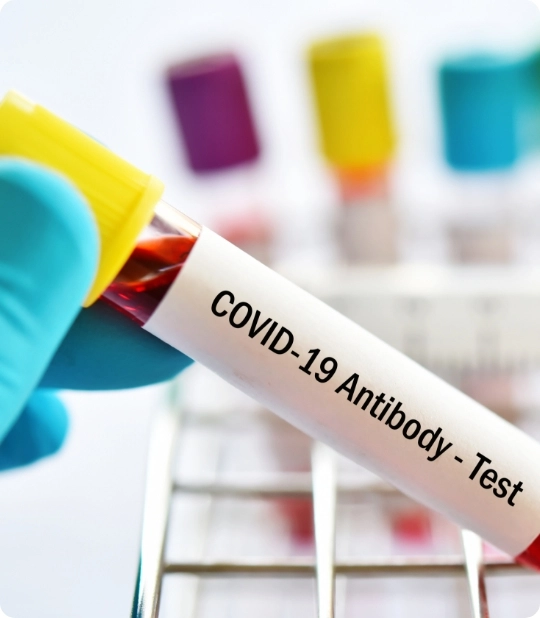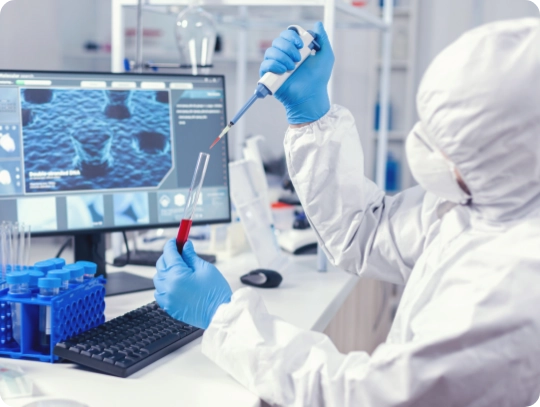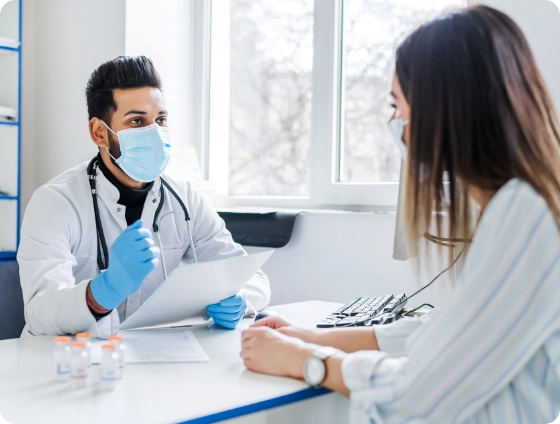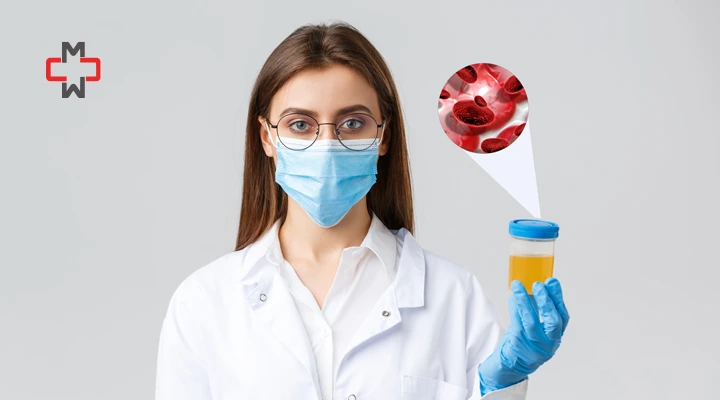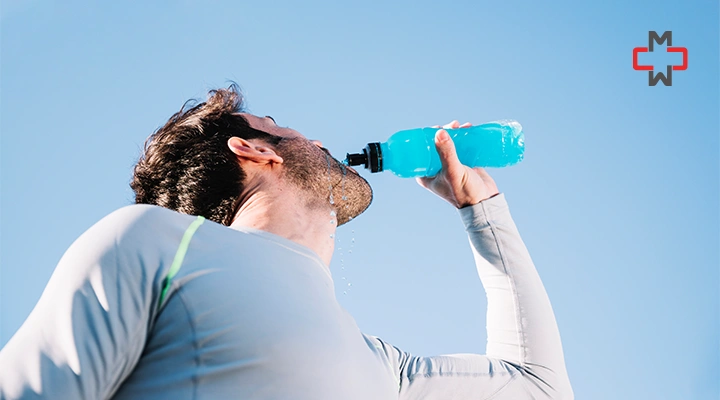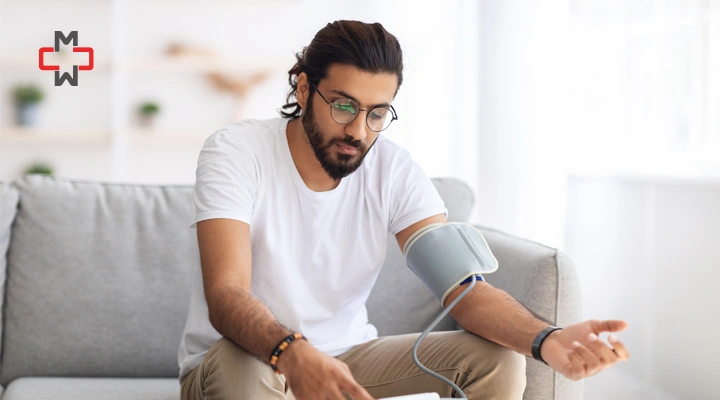COVID-19 Antibody
Testing Near Me
We offer COVID-19 antibody testing at our state-of-the-art facility in Manhattan, New York. The antibody test is useful because it helps:
Determine
Past Infection
Check Prevalence
Of COVID-19
Manufacture Convalescent Plasma
What is a COVID-19 Antibody Test?
COVID-19 Antibody Test, also known as serology testing, is used for the detection of antibodies that develop as a result of exposure to SARS-CoV-2. According to research the antibodies produced after being infected by COVID-19 are immunoglobulin G (IgG) and immunoglobulin M (IgM). The IgM antibodies develop early and can normally take up to 3-4 days, whereas the IgG antibodies are most likely to develop later and can take up to 14 days. The antibodies are in a form of protein in your blood developed as an immune response by your body to fight the infection.
The antibody test for COVID-19 is done using a blood sample. The test doesn’t detect the presence of the virus itself in the sample. It’s used to check the immune response of your body against the infection by looking for the presence of antibodies in the blood. It normally takes up to two weeks after exposure for the body to develop all antibodies against the virus that’s why these tests are recommended for people who think they may have had COVID-19 in the past.
How to Get a
COVID Antibody Test?

Step 1
Schedule an appointment via Zebra or Zocdoc.

Step 2
After appointment confirmation, visit the facility to deposit your blood sample for the test.

Step 3
Get antibody test result within a week.
Where can I get a COVID-19 Antibody Test near me?
You can schedule a visit online or just walk-in to our facility in Manhattan, NYC to get tested. We strictly practice the NYS Department of Health mandated guidelines along with CDC to ensure all the tests are administered safely. We have been successfully doing various COVID-19 tests at our facility including the COVID-19 Antibody Testing, Rapid Testing, and PCR testing, in order to play our part in keeping the people of New York safe from the prevailing pandemic. You can trust our experienced health-care providers and physicians to give you the best care.
Guidelines for COVID-19 Antibody testing in New York
There are some rules and guidelines put in place by the CDC and the NYC Department of Health, for the clinics and other public health organizations conducting Antibody Testing NYC. They are as follows:
- An antibody test for COVID-19 does not replace other diagnostic tests as it cannot detect an active virus in the body.
- It should be done by people who suspect they were previously infected by the virus as it takes up to 2-3 weeks for the antibodies to develop in the body.
- Different types of antibody tests vary in individual performance. We conduct the ones that have received authorization from the FDA and CDC.
- The antibody test is not currently used to determine the immunity from SARS-CoV-2, the virus that causes COVID-19, following the COVID-19 vaccination or determine the need for vaccination in an unvaccinated individual.
- A person who has tested positive for the antibody test and suspects he/she was exposed to the virus recently should quarantine according to local and state guidelines
- People who received a positive on their antibody test result but are not exhibiting any symptoms and were not in close proximity to anyone who had COVID, should continue doing normal activities, including work.
- There have been some confirmed and suspected cases of reinfection from the virus, but they remain rare
- Although the pandemic has been prevalent for over a year now, there are still various unknowns being researched by the scientific community
Frequently Asked Questions
How is the COVID-19 antibody test different from diagnostic tests?
An antibody test is used to determine whether an individual was infected by SARS-CoV-2 in the past as antibodies take a few weeks to develop and can’t detect an active virus. Diagnostic tests like COVID-19 Rapid Testing and PCR Testing, are done to check the presence of an active virus in the body.
How much does a COVID antibody test cost?
The COVID-19 antibody test is covered by most insurance companies. If a person doesn’t have insurance the cost of the test is $250.
Disclaimer: Upon making an appointment, the patient acknowledges that copayment or coinsurance may apply for some tests and insurances. If the insurance deductible is not met, The patient will be charged the full price for the test.
How long does the antibody test result take?
You can get the results for the COVID-19 antibody test within 48-72 hours.
What does a positive antibody test result mean?
In general, a positive antibody test is presumed to mean a person has been infected with SARS-CoV-2, the virus that causes COVID-19, at some point in the past. It does not mean they are currently infected.
Can having antibodies prevent me from contracting the COVID-19 virus again?
Having the antibodies of the virus that causes COVID-19 may to a certain degree provide protection against the virus but there are some rare cases of reinfection that should be taken into account. And we do not know how long this protection may last.
Are there any risks associated with getting the COVID-19 antibody test?
There are no risks and concerns attached to getting a COVID-19 antibody test as it is done using a simple blood draw.
It’s imperative that we take the necessary precautionary measures to stay safe during the prevailing pandemic. Getting tested for COVID-19 is one of the things you can do to make sure you and your loved ones are safe. Manhattan Medical Arts ensures your safety by offering diverse testing methods with a quick turnaround time at the facility.
Latest Blog Posts
Making primary care accessible
